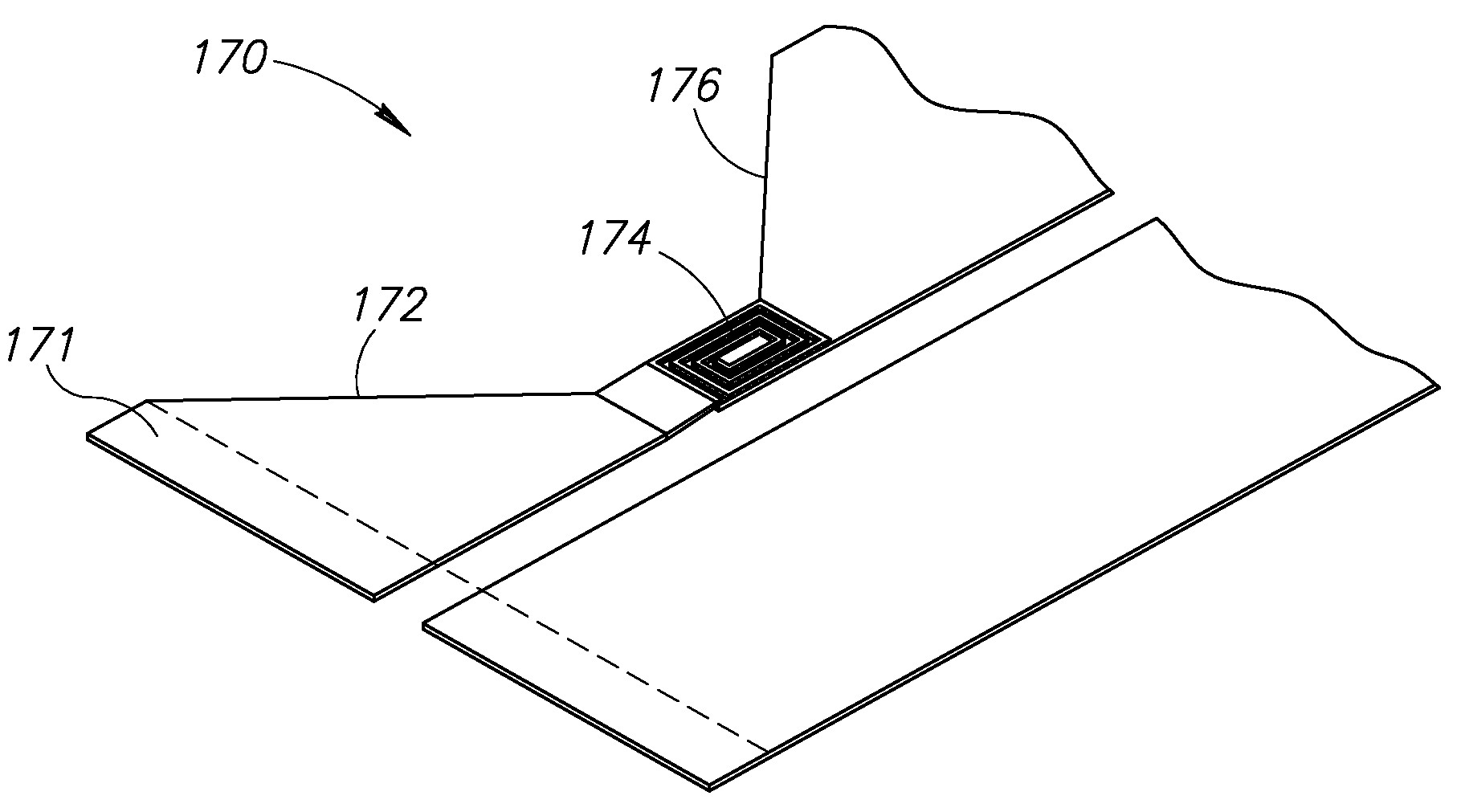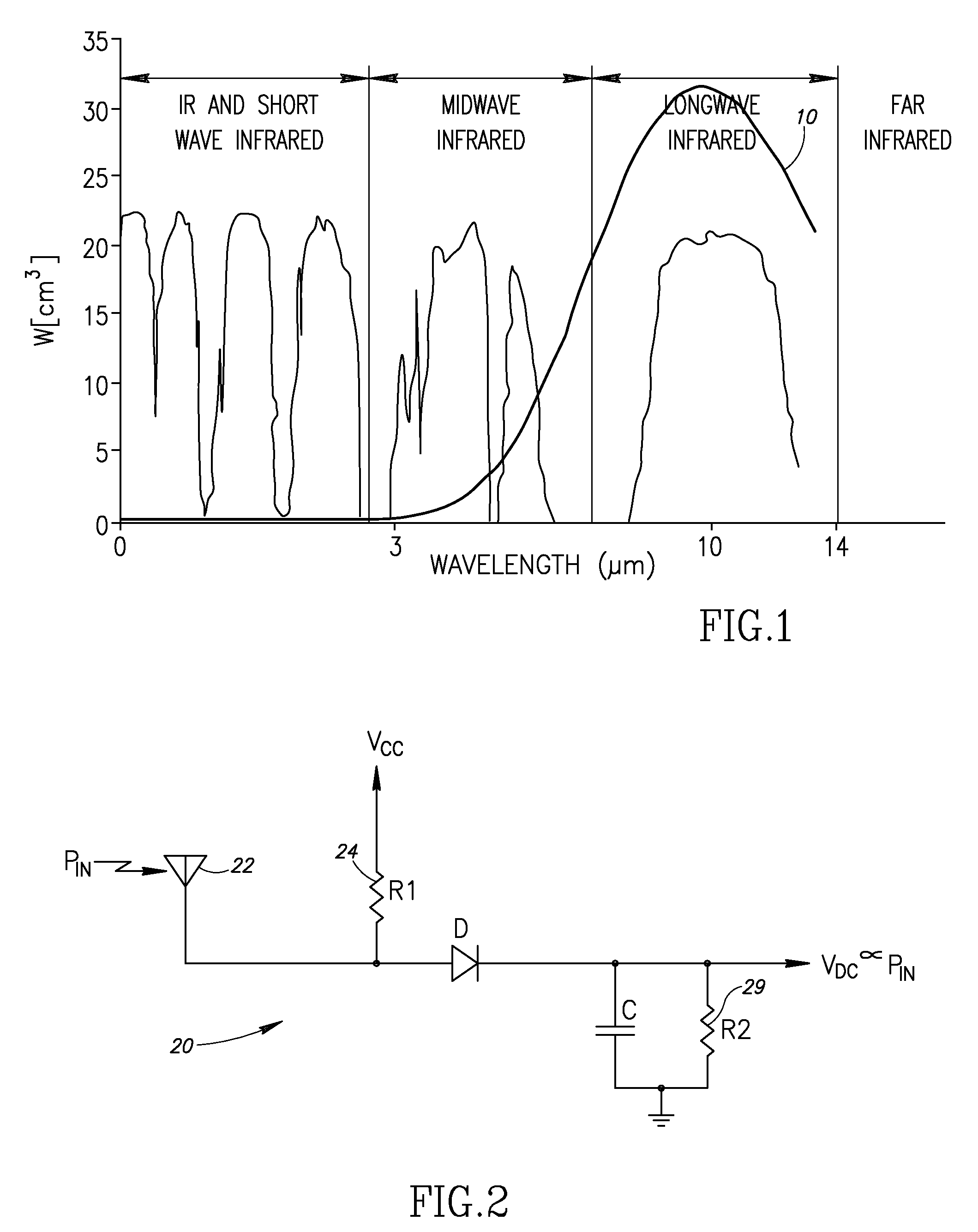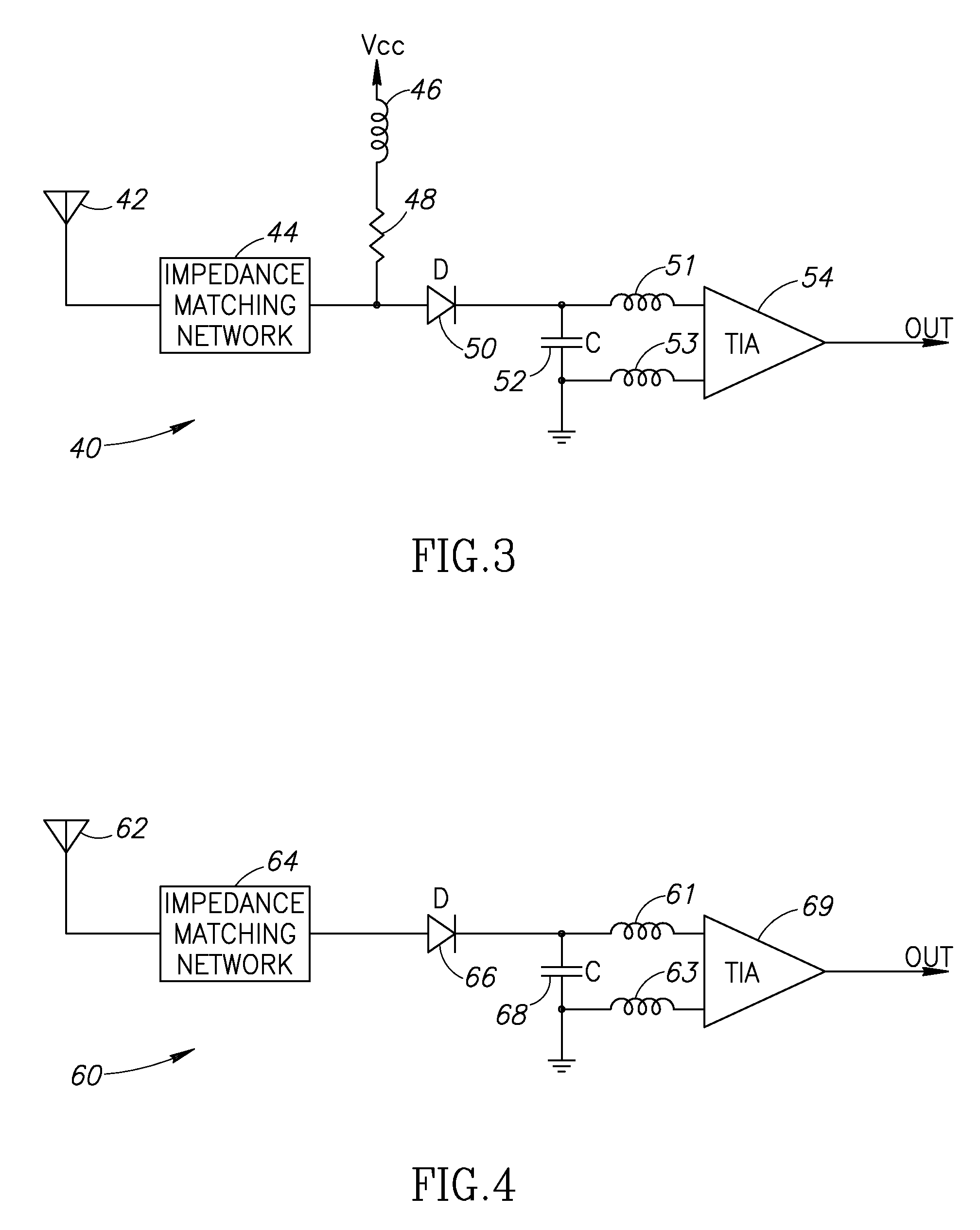Electromagnetic based thermal sensing and imaging
a technology of electromagnetic radiation and thermal sensing, applied in the field of electromagnetic radiation based thermal sensing and imaging, can solve the problems of low sensitivity, high cost of sensor manufacture, and need cryogenic cooling to 77° k, and achieve the effect of potentially higher sensitivity of thermal sensors
- Summary
- Abstract
- Description
- Claims
- Application Information
AI Technical Summary
Benefits of technology
Problems solved by technology
Method used
Image
Examples
example unbalanced
Pixel Circuits
[0138]Several example pixel circuits are presented infra to aid in illustrating the possible variations of the pixel circuit of the present invention. Four example pixel circuits are shown illustrating unbalanced, biased and unbiased, and voltage and current sense topologies. It is appreciated that the present invention is not limited to the example pixel circuits presented herein as one skilled in the electrical art can construct other circuit topologies in accordance with the principles of the invention.
[0139]A schematic diagram illustrating an example balanced, biased topology, current sense pixel circuit is shown in FIG. 19. The thermal pixel circuit, generally referenced 300, comprises a high frequency front end sensor circuit portion 302 and a low frequency back end readout circuit portion 304. The front end circuit sensor circuit comprises an antenna 306, transformer T / impedance matching network, series capacitor C4 tied to series combination of capacitor C1, re...
PUM
 Login to View More
Login to View More Abstract
Description
Claims
Application Information
 Login to View More
Login to View More - R&D
- Intellectual Property
- Life Sciences
- Materials
- Tech Scout
- Unparalleled Data Quality
- Higher Quality Content
- 60% Fewer Hallucinations
Browse by: Latest US Patents, China's latest patents, Technical Efficacy Thesaurus, Application Domain, Technology Topic, Popular Technical Reports.
© 2025 PatSnap. All rights reserved.Legal|Privacy policy|Modern Slavery Act Transparency Statement|Sitemap|About US| Contact US: help@patsnap.com



